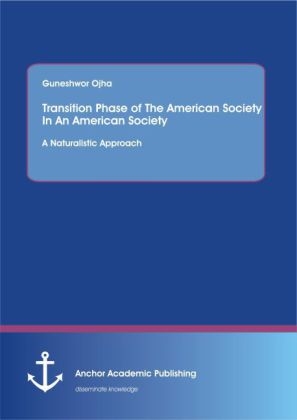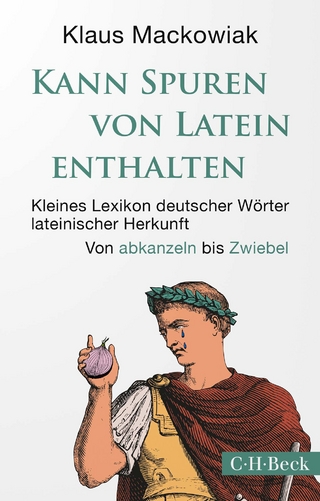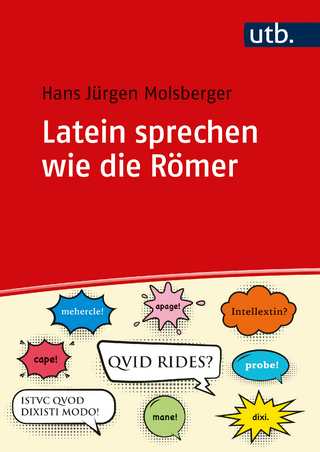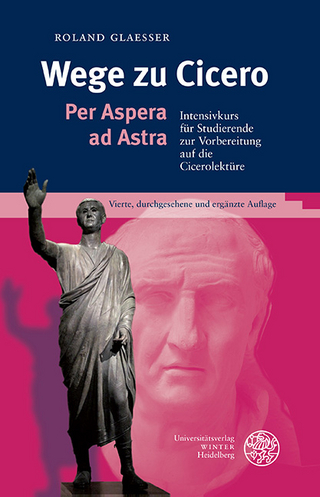
Transition Phase of the American Society in An American Tragedy: A Naturalistic Approach
Anchor Academic Publishing (Verlag)
978-3-95489-436-9 (ISBN)
Whereas realism portrays incidents of a society in a realistic manner naturalists go further to come up with causes and explanations behind the incident. Relying on psychology, chemism and mechanism, Dreiser portrays how human life is devoid of free will. Though it seems gloomy, Naturalism does offer optimism. Naturalists believe that human beings can overcome beastly nature. They can learn to live by reason. Thus, human beings have the potential to achieve a similar ideal world as envisioned by spiritualism. Naturalistic works imply that its stake holders are responsible for existing social ills/evils. In case of the tragic hero Clyde, it was the social structure that denied him access to education and better opportunities to craft a good life.
The author started his career as a school teacher, worked as a District News Coordinator for The Kathmandu Post and as Sub-Editor for The Himalayan Times, two national dailies in Nepal. He also worked as an Interpreter for the International Legal Foundation Nepal (ILF-Nepal). He has earned an M.H. in American literature and an M.A. in Global Society Studies.
Text Sample:
Chapter I Naturalism and Dreiser:
Emlie Zola (1840-1902), a French literary giant is considered as the fountainhead of naturalism in the field of literature. Every literary trend has some inspirational factors or precedent circumstances resulting to its birth. Artists, who can feel the pulse of a society and its environment, react to those expressing what is genuine to them thus, giving birth to a new literary trend or stream. As such naturalism is the consequence of astounding scientific discoveries at the dawn of modernism, ushering human society to an era of modern science. Or naturalism is the shift of belief from mysticism and spiritualism to science and psychology, trying to diagnose human life and cosmic phenomena from natural laws that can be explained scientifically. In the case of American literature, Dreiser is regarded as the pioneer of naturalism. An avid seeker of ultimate knowledge, Dreiser emerged as a naturalist in his late twenties with the publication of his first novel, Sister Carrie. Brought up in a strict puritan family, Dreiser did not turn a naturalist all of sudden. "Dreiser believed in mental telepathy hypnotism, Ouija boards, psalmists, and other occultisms; old folk sayings and practices; and charms."(1) It is obvious that the puritan belief in Dreiser did not give up so easily to the promises laid down by modern science.
Unlike other American naturalists, Dreiser is regarded as a born naturalist. Stating that Dreiser had not read Zola when he wrote Sister Carrie, Malcolm Cowley says, "He had become a Naturalist almost without premeditation, as a result of everything his life had been or had lacked. Unlike Norris he couldn't choose among different theories or move from the drably pitiful to the boisterous to the sentimental." (2) Besides the lure of science, circumstances involving his own life experiences were enough to turn a puritan child like Dreiser into a bold naturalist writer. He had experienced the bitterness of poverty and had also witnessed tremendous changes brought about by science. Moreover, journalism as a career also provided him with ample of opportunities to be acquainted with the harshness of life. The period Dreiser lived was crucial in this that important scientific discoveries had marked a major leap in the history of human civilization. As Louis J. Zanine says, "The development of the electric light bulb, the gasoline engine and the atomic bomb were only the tangible result of that revolution - products of a technology that was spawned by the growing understanding of the physical world." (3) Equally astounding was Darwin's theory of evolution. Though his belief in Christianity was deep rooted, the tree of spiritualism in Dreiser's heart withered slowly loosing its branches as he came to the contact of several scientists and intellectuals of his days. He was so enamored with science that according to Louis J. Zanine, "Dreiser's introduction to science not only shattered his orthodox religious beliefs but left him convinced that science would replace those beliefs with an alternatives, more accurate vision of the cosmos." (4) Thus, he studied different branches of science, ardently. He was mostly fascinated with intellectuals like Spencer, Darwin, Huxley, Loeb and Freud. His natural philosophy revolves around mechanism, determinism, chemism and Freudian psychology which shall be discussed gradually. Dreiser firmly believed that science and psychology would alone explain the life phenomenon.
Next to science, American capitalism in its early phase was another strong driving force in shaping Dreiser as a hard boiled naturalist. The poor led a wretched life whereas the elites enjoyed life to its fullest glory. Humanity seemed to have lost its meaning and the society represented a jungle where every beast strived for success through every brutal means. "While a young reporter in Pittsburgh in the early 1890s, he found his deepest responses to life confirmed by his re
| Erscheint lt. Verlag | 15.9.2016 |
|---|---|
| Sprache | englisch |
| Maße | 155 x 220 mm |
| Gewicht | 153 g |
| Themenwelt | Geisteswissenschaften ► Geschichte |
| Geisteswissenschaften ► Sprach- / Literaturwissenschaft ► Latein / Altgriechisch | |
| Geisteswissenschaften ► Sprach- / Literaturwissenschaft ► Sprachwissenschaft | |
| Schlagworte | Amerika, Geschichte; Geistes-/Kultur-Geschichte • Naturalismus (Literatur) |
| ISBN-10 | 3-95489-436-X / 395489436X |
| ISBN-13 | 978-3-95489-436-9 / 9783954894369 |
| Zustand | Neuware |
| Informationen gemäß Produktsicherheitsverordnung (GPSR) | |
| Haben Sie eine Frage zum Produkt? |
aus dem Bereich


